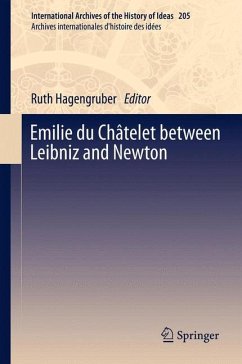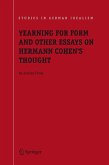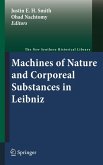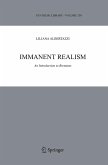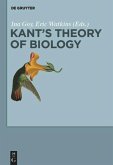Emilie du Châtelet was one of the most influential woman philosophers of the Enlightenment. Her writings on natural philosophy, physics, and mechanics had a decisive impact on important scientific debates of the 18th century. Particularly, she took an innovative and outstanding position in the controversy between Newton and Leibniz, one of the fundamental scientific discourses of that time.
The contributions in this volume focus on this "Leibnitian turn". They analyze the nature and motivation of Emilie du Châtelet's synthesis of Newtonian and Leibnitian philosophy. Apart from the Institutions Physiques they deal with Emilie du Châtelet's annotated translation of Isaac Newton's Principia.
The chapters presented here collectively demonstrate that her work was an essential contribution to the mediation between empiricist and rationalist positions in the history of science.
The contributions in this volume focus on this "Leibnitian turn". They analyze the nature and motivation of Emilie du Châtelet's synthesis of Newtonian and Leibnitian philosophy. Apart from the Institutions Physiques they deal with Emilie du Châtelet's annotated translation of Isaac Newton's Principia.
The chapters presented here collectively demonstrate that her work was an essential contribution to the mediation between empiricist and rationalist positions in the history of science.
"The aim of Émilie du Châtelet between Leibniz and Newton is 'to make the intellectual strength of Émilie du Châtelet apparent and to facilitate a better understanding of the singularity of her work.' ... this book offers not only an important contribution to the literature on Émilie du Châtelet, but also insight into the philosophy of science." (Robyn Arianrhod, The Mathematical Intellingencer, October, 2016)
"This is a valuable collection, focusing on Madame du Châtelet as a serious contributor to both eighteenth-century science and philosophy. Anyone who is interested in studying her ideas in the context of eighteenth-century European mathematics, science, and philosophy should become familiar with its contents." (Judith V. Grabiner, AWM Newsletter, Vol. 43 (3), May-June, 2013)
"Hagengruber's collection of essays provides the most comprehensive coverage of Châtelet's work currently available. ... the bibliographies of primary and secondary works are exhaustive, and the introductory essay by Ruth Hagengruber is a good introduction to Châtelet. ... this is a very worthwhile collection, and for those coming to Châtelet for the first time, the introductory essay and the bibliographies will prove invaluable." (Stephen Gaukroger, Philosophy in Review, Vol. XXXII (4), 2012)
"This is a valuable collection, focusing on Madame du Châtelet as a serious contributor to both eighteenth-century science and philosophy. Anyone who is interested in studying her ideas in the context of eighteenth-century European mathematics, science, and philosophy should become familiar with its contents." (Judith V. Grabiner, AWM Newsletter, Vol. 43 (3), May-June, 2013)
"Hagengruber's collection of essays provides the most comprehensive coverage of Châtelet's work currently available. ... the bibliographies of primary and secondary works are exhaustive, and the introductory essay by Ruth Hagengruber is a good introduction to Châtelet. ... this is a very worthwhile collection, and for those coming to Châtelet for the first time, the introductory essay and the bibliographies will prove invaluable." (Stephen Gaukroger, Philosophy in Review, Vol. XXXII (4), 2012)

